- Home
- Mack Reynolds
Other Time Page 2
Other Time Read online
Page 2
All in the vicinity who could see the money gasped. The chief's eyes shone like obsidian. You would have thought he had been given a treasure.
"I'm sorry I don't have more," Don told him. Could these people be that poverty-stricken? Surely they had to have some money for such things as salt, thread, needles, nails. You can't have a completely self-sufficient economy, even on this level.
He said, "It grows late. I shall have to be on my way. Thank you for your hospitality, old one."
Cuatlazol led the way back to the courtyard and to the gate. They were trailed by the whole village, save for the chief, who remained, in dignity, in his pathetic throne room.
At the gate, Cuatlazol pointed. "Zempoala is that way, O Magician. A large town of the Totonacs."
Don was vaguely surprised that he hadn't been directed toward Vera Cruz; it couldn't be much further from this point. He checked his compass, the other staring at it wide-eyed. Cuatlazol had obviously never seen one before.
Don bade him farewell and took off in the indicated direction. In actuality, he had no intention of attempting to get all the way to Cempoala. Sooner or later, if he stuck to a straight course, he would run into a road, no matter how small. Follow it long enough and he'd run into either a town or a bigger road with vehicles. In this country, any car or truck he hailed would stop and give him a lift.
However, he didn't come to a road, nor even much in the way of paths. He certainly was having the luck of the Irish, damn it. The day was getting toward dusk. Not a town, not a hamlet, not even isolated farms. This was insane. There had to be some roads.
He wasn't particularly worried. He'd parked the Land Rover out in the open, but in this area there was small chance that anyone would run into it. Even if they did, the inhabitants of the vicinity were painfully honest. It was quite unlikely that they would pilfer its contents. It was simply irritating, and time was running out on him. He wanted to get to his explorations and wrap things up in time to return to Austin and his job.
Night caught him in a mountain pass, and "caught" was the only apt term. The wind blew chill and he could make out snow on the nearest peak. Happily, he was able to scare up enough Mesquite to build a fire, and he snugged himself into a small cave, under a ledge. The tortillas he had put in his pocket were a godsend; so also were two of his cigarettes. He dozed a bit before dawn, but it was the most miserable night he could ever remember having spent.
He took off groggily at first dawn, as soon as he could see well enough to walk without falling. There was a narrow path now and he was going downhill, so he made good time. Finally, far ahead, he could make out the sea and a fairly large community. The buildings gleamed almost like silver from this distance; highly whitewashed, he assumed. It was undoubtedly Cempoala. He had never been in the town, which was noted for being quite an archeological zone, but he would have thought it to be larger than this. It was located on the edge of a small river, and shortly he was proceeding along the stream, the path somewhat wider by now.
As he got nearer and was able to make out individual buildings and even some of the people, he realized that he had stumbled on a movie set. He had heard, vaguely, that one of the big American producers was in Mexico making an historical film that rivaled Cleopatra in its all-out expense. At least it would be interesting to see. He could take a taxi or bus back to Jalapa and the real Coatepec later in the day and reclaim his vehicle.
As he got closer to the environs of the town, he began scowling in puzzlement. Various things didn't fit. The buildings on the outskirts didn't ring true. He had no idea that movie sets were this permanent-looking. He could see no movie equipment, cameras, lights, or sound equipment, and though he had never been on a movie set, it didn't look right. Or rather, he thought with a prickle of gooseflesh, it looked too right.
He began to pass various extras, who seemed to be conducting themselves as though they were on camera— but they weren't: children playing in the street, costumed women going up and down carrying water jugs or produce from the market, Indian warriors beplumed and with primitive weapons in their hands. And then he rounded a comer and almost ran into three soldiers done up in the costume of sixteenth-century Spain.
A cold finger went dit-dit-dit up his spine.
This was no movie set.
Chapter Two
Or, if it was, these three were going overboard in their attempt to achieve authenticity. The two bearded ones wore helmets, breastplates, and swords and carried pikes, or perhaps they were halberds. Don wasn't particularly up on medieval weapons. The younger one, possibly in his early twenties, wore a velvet cap rather than a helmet and was without armor. His sword seemed lighter and was more highly decorated than those of the others. He was darkly handsome in the Latin tradition, almost to the point of being pretty.
They wasted no time. The younger man's rapier flashed out. The two pikes were presented, quickly, efficiently. The sword's point was at Don Fielding's throat.
"By my soul, a stranger," the young one lisped in Spanish. It wasn't the deliberate Castilian lisp of the educated Spaniard but evidently a slight impediment in speech. He had an open enough countenance; chestnut hair curled close to his head, and his frame seemed strong and sinewy. He could have been one of Don's students, save for his get-up. There was a certain undefinable insolence in his eye, a mocking.
Don said evenly, "What is all this about?"
"Ah-ha, so you speak our language. Who are you, my sky-high friend? Where are you from? What manner of garb is that?"
Don said, "If you'll take that damned pig-sticker away from my throat, I'll answer your questions. I am lost. I'm trying to find transportation back to my vehicle. My name's Don Fielding."
"Don Fielding. Then you claim to be of gentle blood?" The point of the sword withdrew slightly.
"Why ... why I suppose so." Don must remember to speak the other's Castilian, rather than the Mexican dialect with which he was more familiar. His Spanish was excellent; it had been his major language when a student and he'd had a lot of practice since. The swordsman's own terminology seemed somewhat archaic but was perfectly understandable and obviously his native tongue.
The other came to a sudden decision and slipped the sword back into its scabbard.
He took the feathered velvet cap from his head and made a sweeping bow—Errol Flynn couldn't have done it better. "Gonzalo de Sandoval, your servant, Don Fielding. And now if you will accompany me to the Captain-General, we shall have more of your story."
He turned and headed off, leading the way. There was nothing else for it, and Don followed. The two soldiers, silent all this time, brought up the rear. He was still under guard.
As they progressed, Don took in more of the town. No, this was no movie set. He didn't have the vaguest idea of where he was, or what was up—but this was no movie set. It was all very real.
The houses were largely similar to the community building he had seen the day before. That is, they were single-storied, many-roomed, and invariably built about a courtyard. Even the smaller ones had a good many rooms. There were no doors, no windows, no chimneys, but all was spotless, even the streets. The place had a peculiar smell— not unpleasant, but rich with exotic promise. The smaller places were thatched with palm leaves and there were usually colorfully decorated mats or rugs over the entries to the rooms. Flowers and trees were everywhere. It was an extremely beautiful town, no matter how strange.
The throngs of people in the streets were all in costume and of the same type he had seen the day before, save of higher quality. The women, in particular, had highly colorful cotton dresses and bodices which were embroidered in such fashion as to remind Don Fielding of the dress of bishops and abbots of the Roman Catholic Church. A great many of the less richly dressed were barefooted; those who seemed to be in better circumstance, or were wearing their best, for whatever festive reason, wore sandals of leather, some quite ornate. Some of the men wore ear plugs, or even lip plugs. How far out in primitive costume could you get
?
They passed an open area containing a market. It seemed literally to overflow with produce. Largely, it was similar to a score of other Mexican town markets Don had witnessed in his time, though, strangely, some of the products he would have expected were not evident. Bread, for instance, or chickens; nor, for that matter, did he spot either beef or pork in the section devoted to meats. And where were the inevitable ice-cream vendors? Whoever heard of a Mexican market without ice-cream vendors? And, now that he thought about it, there were no refreshment stands selling beer.
But it was the costume that threw him off. The market contained thousands of both sexes and all ages, and every single one was in costume. Why, in the name of anything holy?
As they progressed, from time to time they passed small groups of others in the armor and costume similar to that of his following guards and the lad who had named himself Gonzalo de Sandoval. All were armed and all were armored; most wore helmets, though some were bareheaded. Almost all were black-or redbearded. They would look after Don and his escort curiously, but none addressed them. Don got the feeling that they thought him a strange sight, but they were used to strange sights.
In the center of town was a large walled enclosure which he estimated to be several acres in area. As they approached, he could make out sentries patrolling the walls, pikes in hand. There must have been some twenty of them.
They entered through a large gateway, walking briskly. Immediately inside was a guard of ten and two small cannon, each about four feet long. Don was no authority on muzzle-loading cannon, but unless he was mistaken they were falconets. They were mounted in as primitive a manner as he could have imagined.
Two of the guard carried matchlock arquebuses, two others crossbows. The rest, except for one who was obviously an officer, were armed with pikes.
Sandoval said, "San Tomas," and continued on his way. Don followed. The enclosure seemed to teem with soldiers in the same costume as those with whom he had already come in contact, hundreds of them. All over again, his reeling mind considered the possibility that this was one great movie set.
To his left was the most beautifully reconstructed pyramid Don had ever seen. But, no, it couldn't be a reconstruction. Not even in Chichen Itza had he come into anything like it. It had to have been built comparatively recently. There were some fifteen pyramids, temples, and other buildings within the enclosure, all done with the utmost authenticity, so far as he could make out without further investigation.
They headed briskly for the largest of the temples. At least, he supposed it was a temple. It reminded him of various Mayan ruins, including the House of the Governor in Uxmal, though on a smaller scale. It was set up on a platform and they had to mount the stone steps. To the right was another pyramid and to the left what looked like an altar. Don looked about as they mounted the steps. Besides what he quickly estimated at about three hundred of the medieval-clothed white men were possibly a hundred Indians, both men and women. Some of them were dressed in black. Priests?
At the top of the stairway was a long rectangular building with various doorways, highly ornate in the decoration of the stone facing. Don Fielding was reminded of some of the late Aztec reliefs in the National Museum in Mexico City.
Before one of the entries were two more sentries, both armed with crossbows. The weapons seemed to be in mint condition. Whoever was behind all this, whatever all this was, was a demon for authenticity. Don couldn't imagine what could have motivated this breathtaking reconstruction.
Sandoval lisped to the sentries, "San Tomas." It was obviously the password of the day. He and Don Fielding entered; the two pike men remained behind.
They were in a room about twenty-four feet long and twelve feet wide. It had no connections with the rooms on either side. It was easily sixteen feet to the ceiling and was naked of furniture except for an improvised wooden desk in its middle behind which, on a folding wooden chair, sat another Spaniard—Don assumed they were Spaniards. Certainly that was their language, as well as their costume.
There was also present, standing, a girl of about twenty or so. She was an Indian and one of the most attractive Don Fielding could ever remember having seen. She was more than averagely light of complexion and her features were quite Caucasian. Her dress was similar to the Mayan. She wore the kub, a single piece of decorated woven cloth with holes for the arms and a square-cut opening for the head. Underneath, she wore a longer petticoat-like dress highly decorated and fringed. Don was reminded of the sack-dress style of some years ago in the States. She was barefooted.
There were also present a priest garbed in robes and a youngster of possibly eleven who was done up in costume approximating that of his elders, even to a light sword.
The one behind the desk said, while staring at Don Fielding, "Hola! Gonzalo, what have we here?" In Spanish, of course.
The youthful Sandoval chuckled. "I have brought him here in hopes you would tell me, my Captain." He turned back to Don and made a flowing gesture of his hand in way of introduction.
"Captain-General Hernando Cortes, Don Fielding."
And the cold finger traced its way up the spine of Don Fielding once again.
The other was a man somewhere in his middle thirties, pale of complexion, large dark eyes in a small head with a weak jaw. Though he was seated, the man was less than average in stature, though, for that matter, so seemed all of the rest of the white men he had seen today, not to speak of the Indians. He was obviously a man of vigor and one of intelligence. Or would you say cunning? He was richly dressed, compared to the others, and wore a gold chain around his neck. He radiated command, cheerful temperament, good will.
And Don Fielding did not like him.
Beyond the desk Cortes nodded, made a gesture of his own toward the priest, and said, "Fray Bartoleme de Olmedo."
Don said, "My pleasure, Father." He looked emptily at the girl.
"And this is Malinche," said Sandoval.
Hernando Cortes said, in surprise, "Dona Marina. She has been baptized. But although you are a stranger, evidently you have heard of me, Don Fielding."
"Yes," Don said, his minding reeling. "I have heard of Hernando Cortes."
Sandoval said, "He claims that he is lost and wanted transportation back to his ... vehicle."
"Vehicle?" Cortes repeated. "But there are no vehicles in all New Spain. What kind of vehicle?"
Though his mind was spinning with the impossibility of it all, Don Fielding knew he was going to have to play this with care. With great care.
He said, "In my land we call them campers."
"And where is your land?"
"Far to the north. You know nothing of it. It is not even on your charts."
"But you speak Spanish. A somewhat oddly accented Spanish, but surprisingly good."
"There are some Spanish in my country. They have come from ... Puerto Rico, in particular."
"Ah," the priest said. "Poor shipwrecked souls, undoubtedly."
Don didn't answer that aloud, though he muttered in English, under his breath, "In a way."
Cortes was staring him up and down with continuing amazement. He said, "This vehicle of yours, where is it?"
"About a day's journey to the west."
"To the west! Toward the lands of the Tlaxcalans?"
"On the border of Tlaxcala."
The eyes of the Captain-General narrowed. "You name yourself a gentleman, yet you carry no sword. Not even in this country of savages who have never heard of our Saviour."
"I am a scholar, not a soldier."
"My faith, you must be a madman to travel about without a weapon and by yourself. What is that?" He pointed to the entrenching tool which hung from Don's belt on his left hip.
Don said, "A tool which I use in my scholarly research."
The Spaniards evidently assumed that the small holster on his right hip contained the same. None asked him about it.
Cortes thought for a moment. He said, "This far land of yours—what is its na
me?"
"The United States of America. And it is very far—in more ways than one, I fear."
"I see. Is it a rich land?"
"It is the richest land in the world, Don Hernando."
"My faith," the other said, his eyes narrow again. "Perhaps one day we shall visit it, eh, Gonzalo?"
Young Sandoval chuckled.
Cortes said, "However, for the present we are interested in the domains of Montezuma, which lie to the west and beyond those of Tlaxcala. You must understand, Don Fielding, that we are an exploring expedition from Cuba with the intention of opening up trade with this area." Fray Olmedo said, a touch of reproof in his voice, "And to convert the heathen, my son."
"Yes, of course," Cortes said. "On my faith as a gentleman, that is the most important feature of our expedition. Within a few days we plan to take up the march inland toward this fabled city of Tenochtitlan to meet with Montezuma. The route will take us through Tlaxcala. Perhaps you will join us, Don Fielding; we may recover your vehicle on the way, though I doubt that your animal will have survived for such a period of time."
Don didn't bother to tell him that his particular vehicle was a horseless carriage and that, so far as he knew, it was a very long distance away in more than just space.
He was under no misapprehensions about why he was being invited to join the expedition. The Captain-General wanted to hear more of this rich land far to the north. He was evidently capable of already planning beyond Tenochtitlan.
Don Fielding hesitated. He was without food, transportation, or locally acceptable funds. He was without employment and without any idea whatsoever of how to acquire a position. In short, he had no alternative.
He said, "You are much too kind, Don Hernando." Cortes said briskly, "Very well, it is done. Gonzalo, see that Don Fielding is given quarters and provisions." All this time, the girl, Dona Marina, as they called her, had remained quiet, her intelligent dark eyes taking Don in. She was evidently set back by his height. He towered more than a full foot over her. It occurred to Don that she didn't speak Spanish and had been unable to follow the conversation. He opened his mouth to say something in Nahuatl, but then closed it again. No one present knew that he was acquainted with the language and he doubted that any of the Spanish spoke it. It wouldn't hurt to keep the fact to himself; it might be an advantage on some occasion. He could use advantages.

 Happy Ending
Happy Ending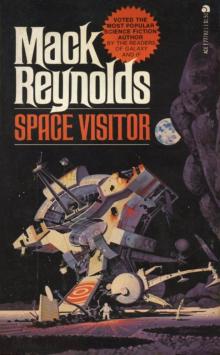 Space Visitor
Space Visitor A Kiss Before Loving
A Kiss Before Loving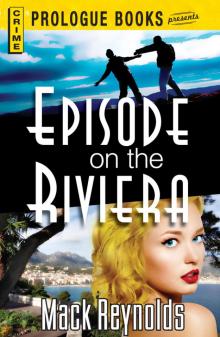 Episode on the Riviera
Episode on the Riviera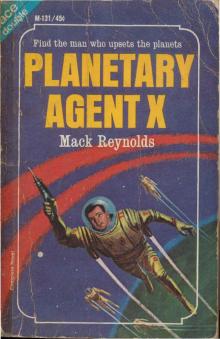 Planetary Agent X
Planetary Agent X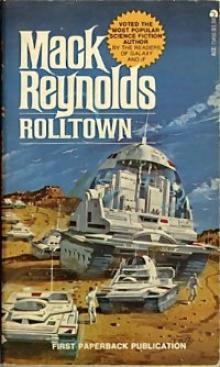 Rolltown bh-3
Rolltown bh-3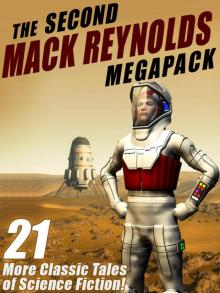 The Second Mack Reynolds Megapack
The Second Mack Reynolds Megapack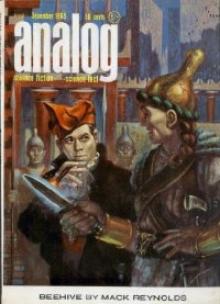 Dawnman Planet up-2
Dawnman Planet up-2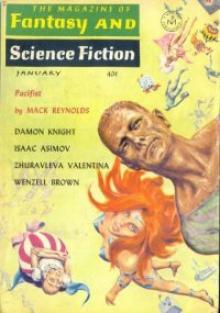 Pacifist
Pacifist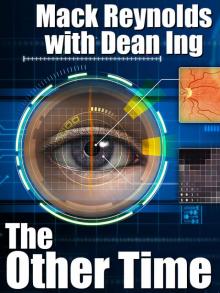 The Other Time
The Other Time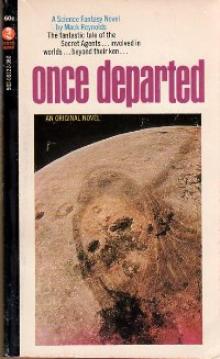 Once Departed
Once Departed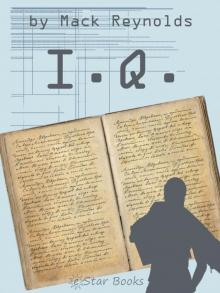 IQ
IQ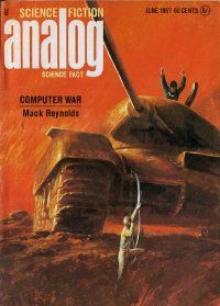 Computer War
Computer War Earth Unaware
Earth Unaware The Rival Rigelians up-3
The Rival Rigelians up-3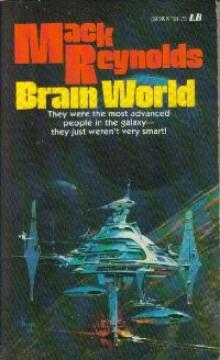 Brain World up-7
Brain World up-7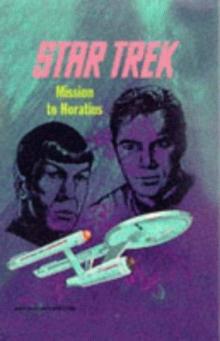 Star Trek - TOS - Mission to Horatius
Star Trek - TOS - Mission to Horatius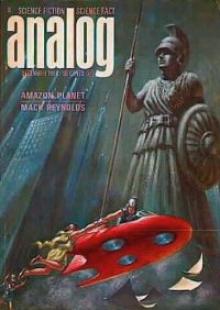 Amazon Planet up-5
Amazon Planet up-5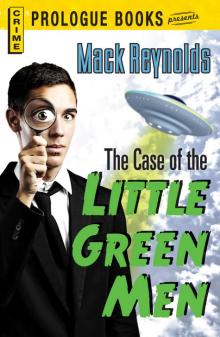 The Case of the Little Green Men
The Case of the Little Green Men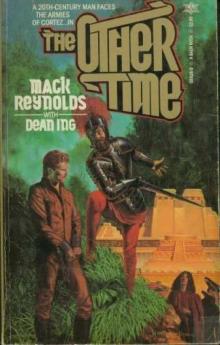 Other Time
Other Time The Mack Reynolds Megapack
The Mack Reynolds Megapack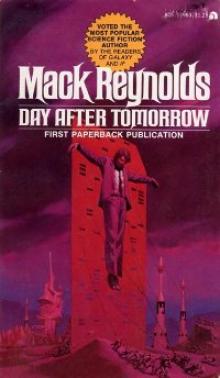 Day After Tomorrow
Day After Tomorrow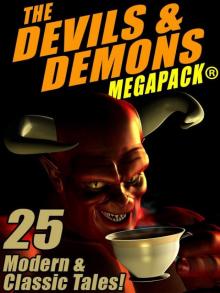 The Devils & Demons MEGAPACK ®: 25 Modern and Classic Tales
The Devils & Demons MEGAPACK ®: 25 Modern and Classic Tales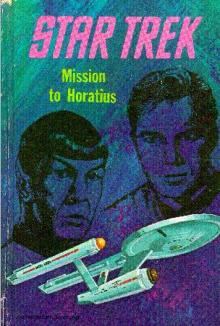 Mission to Horatius
Mission to Horatius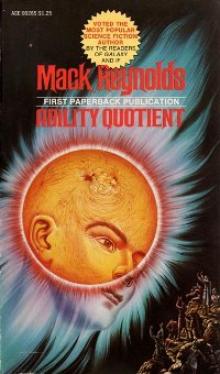 Ability Quotient
Ability Quotient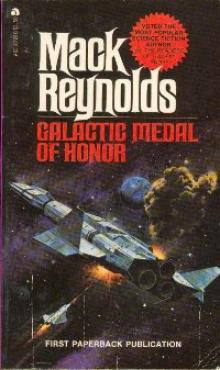 Galactic Medal of Honor
Galactic Medal of Honor Trojan Orbit
Trojan Orbit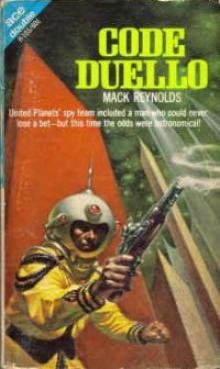 Code Duello up-4
Code Duello up-4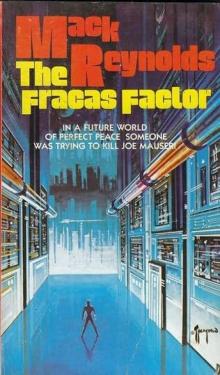 The Fracas Factor
The Fracas Factor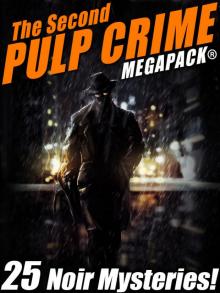 The Second Pulp Crime
The Second Pulp Crime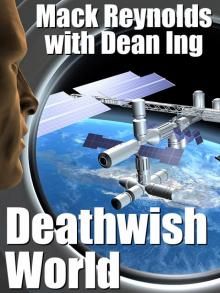 Deathwish World
Deathwish World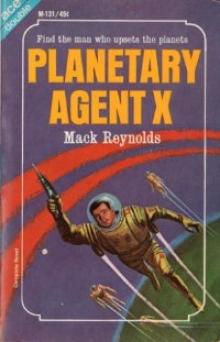 Planetary Agent X up-1
Planetary Agent X up-1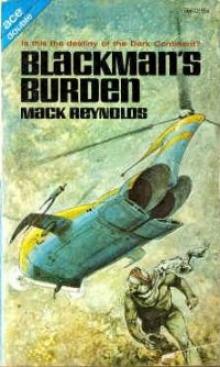 Blackman' Burden na-1
Blackman' Burden na-1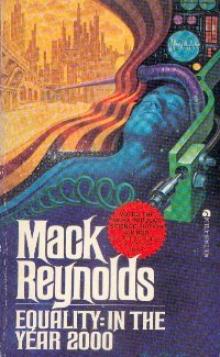 Equality: In the Year 2000 jw-2
Equality: In the Year 2000 jw-2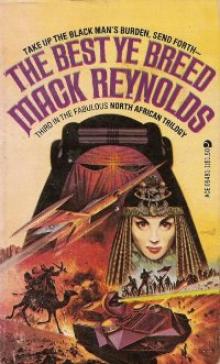 The Best Ye Breed na-3
The Best Ye Breed na-3 The Jet Set
The Jet Set The Rival Rigelians
The Rival Rigelians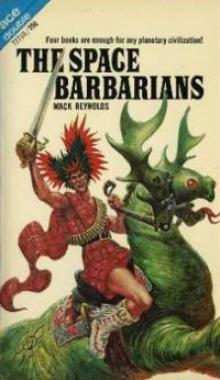 The Space Barbarians
The Space Barbarians